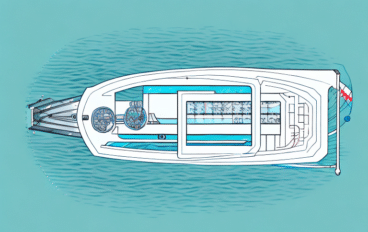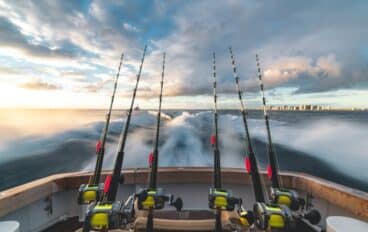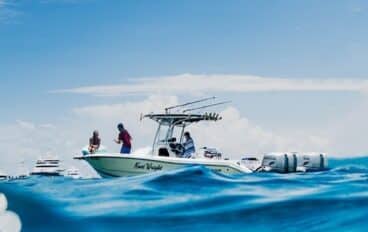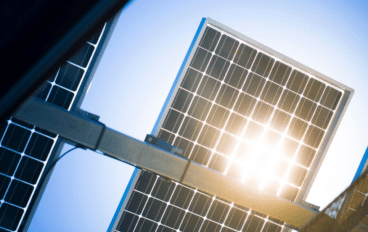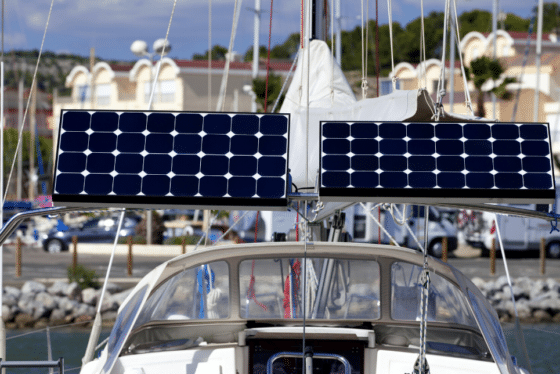
When you are shopping for marine solar panels, you will discover there are several different types of panels you can buy: monocrystalline, polycrystalline, and amorphous.
In this brief guide, we will explain the differences between each of the 3 types of marine solar panels with you, and help you figure out which is best for your needs.
Looking for a Solar Battery Charger? You might be interested in: The 5 Best Solar Battery Chargers for Boats
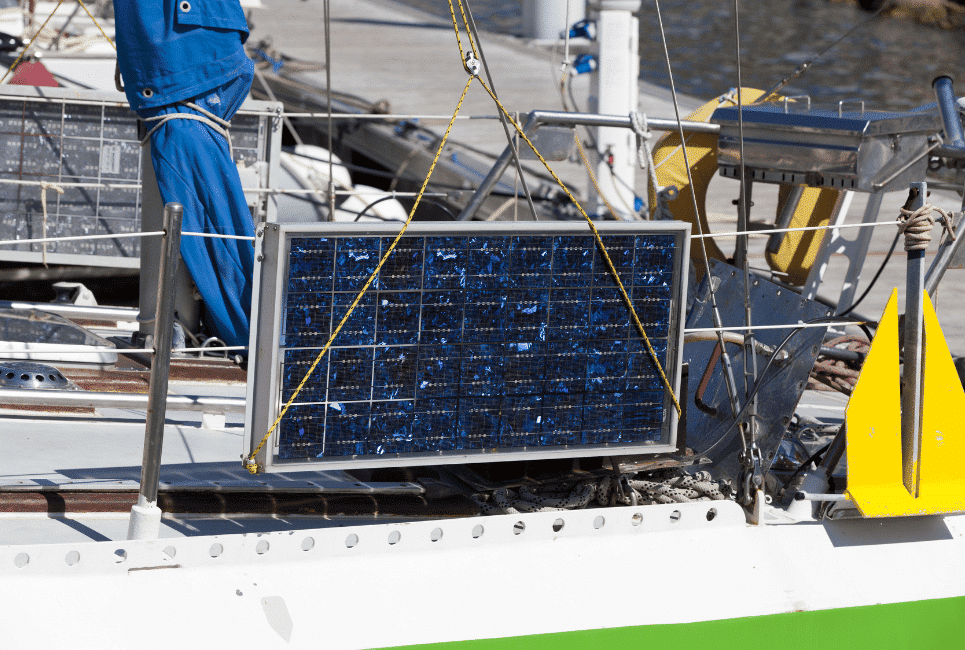
Benefits of Installing Marine Solar Panels on Your Boat
Before we compare the different types of marine solar panels, let’s explain briefly why it is worthwhile to install solar panels on your vessel.
Solar panels let you harvest no-cost electricity from the sun for your vessel. They are eco-friendly and provide an impressive amount of energy for your onboard appliances. They will typically pay for themselves very quickly.
Marine-grade solar panels will surprise you with how flexible yet durable they are, standing up to whatever conditions the sea throws at you.
Marine Solar Panels vs RV and Cabin Solar Panels
One question you might have before you shop is why you cannot simply use RV or cabin solar panels at sea.
The answer is that regular solar panels that you use for an RV simply are not designed for ocean use. They are not waterproof and are often too rigid to install where you need them on your boat.
Marine solar panels, on the other hand, are waterproof, standing up to splashes from the sea. They also are more flexible, so installation is easy wherever you need them.
What are the 3 Types of Solar Panels?
Now that you understand why you need to purchase marine solar cells specifically, let’s go over the 3 main types available.
1. Monocrystalline Solar Panels
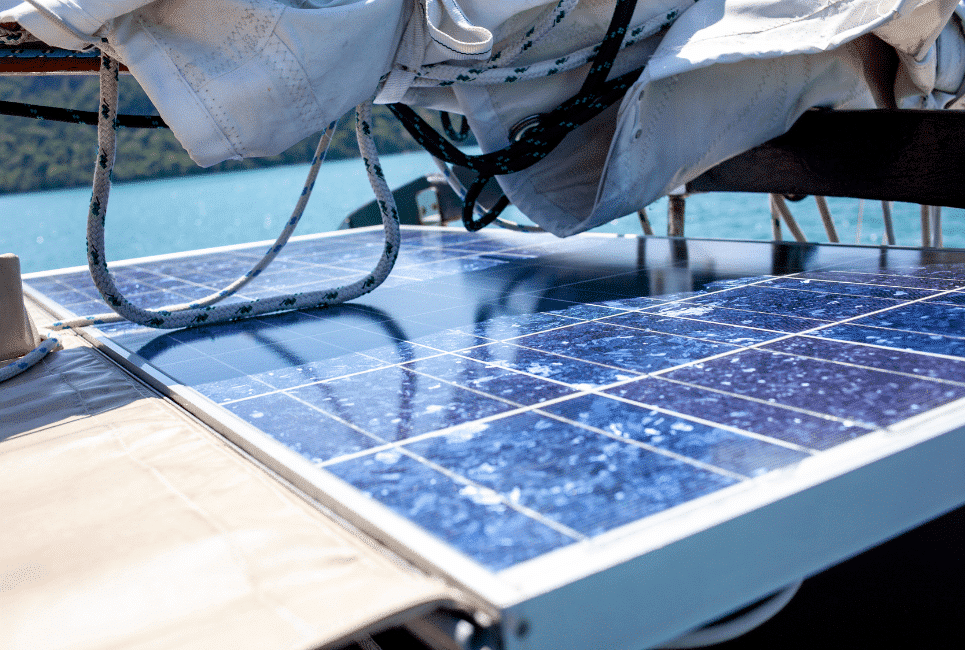
The name “mono” in the name of this type of solar panel refers to the fact that a single silicon crystal is used to create each one. If you can afford them, these are arguably the best marine solar panels for most situations.
Pros
- Monocrystalline panels deliver the highest efficiency.
- The panels can be manufactured with smaller dimensions since they are so efficient, which can give you more mount options.
- The longevity of these panels is excellent. Many will work for over 25 years before you need to replace them.
Cons
- You will pay more for this kind of solar panel than you will for polycrystalline ones.
Monocrystalline Solar Panels Are Best For
If efficiency and longevity are your main priorities, consider getting monocrystalline solar panels for your boat.
2. Polycrystalline Solar Panels
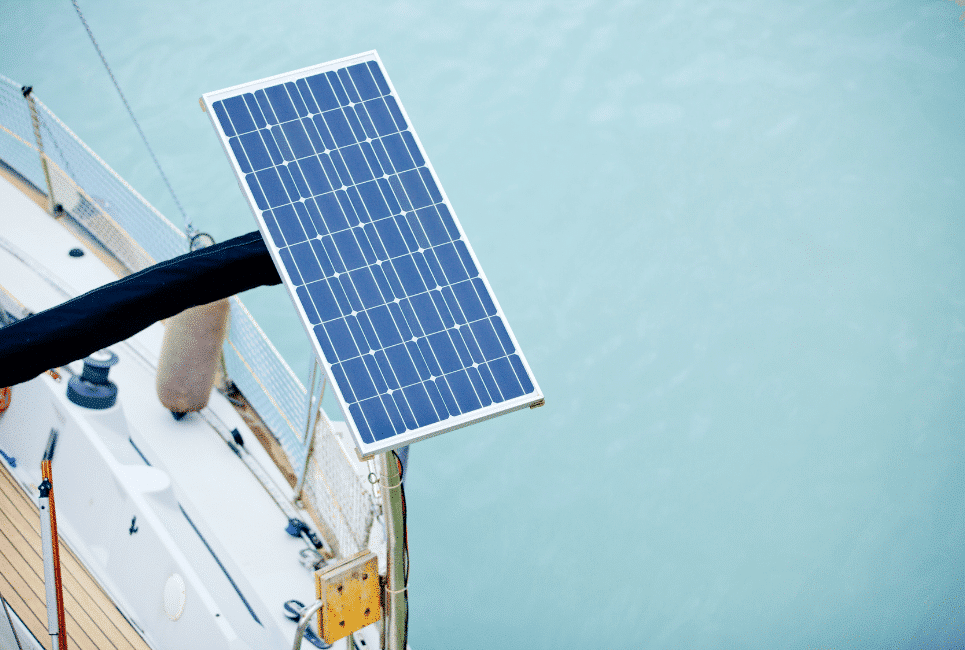
As you might have guessed, these solar panels are manufactured from multiple silicon crystals. Typically, these crystals are lower in quality than those used on monocrystalline cells. As a result, they are less efficient, but they are also more economical. Another name for polycrystalline solar panels is “multicrystalline” solar panels.
Pros
- Polycrystalline panels are cost-effective to purchase.
- Despite their lower quality, polycrystalline walk-on marine panels can still provide you with reliable power.
Cons
- The efficiency, longevity and size of polycrystalline panels is not as good as what you get from monocrystalline panels.
Polycrystalline Solar Panels Are Best For
Consider polycrystalline solar panels if you need to save money upfront.
3. Amorphous Solar Panels
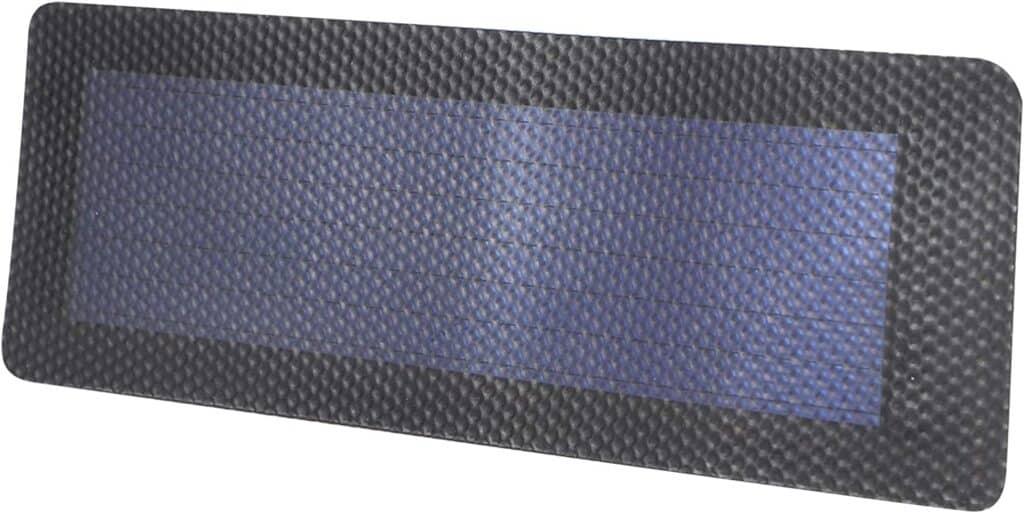
The third of the different kinds of solar panels for boats is amorphous solar panels. They are the best marine flexible solar panels, featuring a roll-up design. That means you can mount them practically anywhere.
While they are not the most efficient panels on bright days, they are highly efficient on overcast days.
Pros
- Unlike rigid marine solar panels, you can install these flexible marine solar panels on practically any surface.
- Amorphous panels work great on cloudy days.
Cons
- Efficiency is not as good on bright days.
Amorphous Solar Panels Are Best For:
Choose amorphous solar panels if you live in a climate that is frequently overcast, or if you need the most flexible panels.

